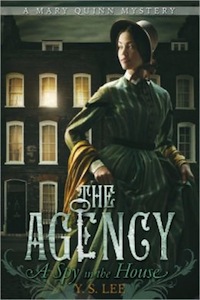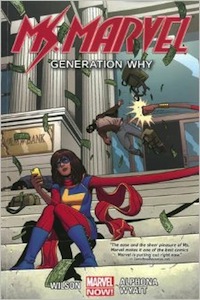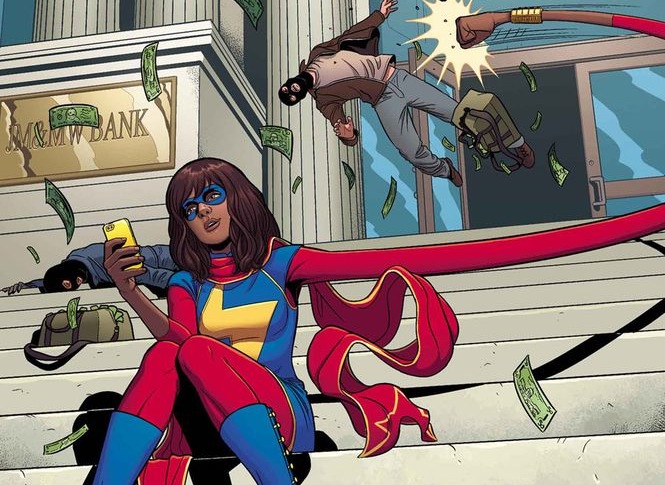Young people these days are pretty awesome, actually. In a startling coincidence, all four of the books I want to tell you about this week star young women: young women who are coming into their own, facing their own trials and challenges, and rising to meet them.
The youth of today, man. They’re starting to make me feel old and lazy.
 I heard about Sword, Amy Bai’s debut novel, via Jim Hines’ blog. His review was enough to convince me that I should check it out. And with the ebook going for five quid, it proved a really good investment. It’s apparently the first novel in a longer sequence, and I’m looking forward to seeing what happens next.
I heard about Sword, Amy Bai’s debut novel, via Jim Hines’ blog. His review was enough to convince me that I should check it out. And with the ebook going for five quid, it proved a really good investment. It’s apparently the first novel in a longer sequence, and I’m looking forward to seeing what happens next.
Bai takes a handful of tried-and-true fantasy tropes—prophecy, the girl who is Not Like Other Girls because she’s trained to fight, the boy whose magic is linked to music—and uses them to tell a vibrant, compelling story. That’s a difficult trick to pull off, and Sword does take a little while to get its feet under it: the opening chapters are rather misleading in how familiar the territory feels (at least to my jaded palate). But once it gets properly under way, it becomes something rather more than the sum of its parts. Sword’s first half turns out to be a cracking good read; its second half, after the major narrative upheaval that takes place midway through, turns out to be even better.
Sword has three protagonists, though, fittingly, one of them takes up the most room—Kyali Corwynall, our sword-wielding girl. The other two main characters are her elder brother Devin, whose magic is connected to his musical talent, and Kyali’s best friend Taireasa, daughter of their kingdom’s present king. The three of them are linked by prophecy, magic, and friendship. (And also by law and tradition: the heir to the kingdom is selected by a vote of the nobility from two bloodlines, and they’re the only ones eligible in their generation.) And friendship—loyalty—love, really—is at the heart of the narrative. Kyali makes a terrible sacrifice for Taireasa, and much of the emotional weight of the latter half of the book is built around the consequences of that, of how Kyali strives to protect her friend and her brother (and herself) from the pain that she doesn’t want to share with them—which hurts them in its own way—and how all three of them have to deal with that. It does interesting things with aftermaths.
Oh, and there’s magic, and a rebellion, and prophecy-as-mystery-no-one-quite-knows-what-to-do-with, and geasa. And battles. And swordfights and assassination attempts. Next book now, please?
 I’m somewhat less enthusiastic about Chrysoula Tsavelas’ Citadel of the Sky, which came into existence with the aid of crowdfunding. It’s an interesting approach to epic fantasy. I wanted to like it: it’s got several really rather engaging young women as its main characters. But it doesn’t start pulling a solid narrative through-line together until rather late: several elements that are introduced early on either peter out without really going anywhere, like one of the protagonists’ unusual interest in theatre, or don’t quite ever stop being confusing, like the magic/epic elements. The Epic Threat seems to leap almost out of nowhere… but it’s possible I was reading it on too little sleep. Has anyone else read it and would like to explain to me what was going on there in the comments?
I’m somewhat less enthusiastic about Chrysoula Tsavelas’ Citadel of the Sky, which came into existence with the aid of crowdfunding. It’s an interesting approach to epic fantasy. I wanted to like it: it’s got several really rather engaging young women as its main characters. But it doesn’t start pulling a solid narrative through-line together until rather late: several elements that are introduced early on either peter out without really going anywhere, like one of the protagonists’ unusual interest in theatre, or don’t quite ever stop being confusing, like the magic/epic elements. The Epic Threat seems to leap almost out of nowhere… but it’s possible I was reading it on too little sleep. Has anyone else read it and would like to explain to me what was going on there in the comments?
 Y.S. Lee’s A Spy In The House isn’t SFF—it’s a YA cross between detective and spy fiction set in Victorian London—but I think it might prove diverting to readers here. It certainly diverted me, enough that I got Lee’s next three books from the library. Mary Quinn was rescued from the gallows at age twelve and raised by a school for young ladies that conceals a secret detective agency behind its unassuming facade. Now seventeen, she’s been offered her first undercover assignment, as a paid companion in the house of a wealthy businessman suspected of smuggling and insurance fraud. It’s a fun, fast read that’s saved from excessive similarity to other novels of its ilk because its main character is biracial passing as white, and her view of London adds an interesting layer to the Victoriana.
Y.S. Lee’s A Spy In The House isn’t SFF—it’s a YA cross between detective and spy fiction set in Victorian London—but I think it might prove diverting to readers here. It certainly diverted me, enough that I got Lee’s next three books from the library. Mary Quinn was rescued from the gallows at age twelve and raised by a school for young ladies that conceals a secret detective agency behind its unassuming facade. Now seventeen, she’s been offered her first undercover assignment, as a paid companion in the house of a wealthy businessman suspected of smuggling and insurance fraud. It’s a fun, fast read that’s saved from excessive similarity to other novels of its ilk because its main character is biracial passing as white, and her view of London adds an interesting layer to the Victoriana.
 I’ve never thought of myself as a reader of comics (or even graphic novels), but I seem to be developing an interest despite myself. (It’s all the fault of Gail Simone and Red Sonja. Well, and a good friend of my acquaintance who keeps pushing the excellent stuff.) G. Willow Wilson’s Ms Marvel Vol 2: Generation Why is the kind of thing that actually makes me wistfully think of getting comics in flimsies, if it meant I could read more of this sooner. Kamala is an awesome character, and Wyatt and Alphona’s art is a touch whimsical without trending over into hard-to-follow. The first part sees Kamala team up with Wolverine to fight alligators in the sewers of New Jersey—and damn, that was kind of hilariously excellent—while the rest of this volume focuses on Kamala’s conflict with weird mad-scientist “the Inventor.” And her new sidekick, a dog called Lockjaw. With entertaining moments spent on that universal bane of adolescence, “explaining to your parents that you’re perfectly safe after a giant robot smashed your classroom.” Generation Why hits the message of yes, adolescent generation, you’re worth something and the future is yours to make! a little hard—but as moralistic fiction goes, that’s a message I can get behind.
I’ve never thought of myself as a reader of comics (or even graphic novels), but I seem to be developing an interest despite myself. (It’s all the fault of Gail Simone and Red Sonja. Well, and a good friend of my acquaintance who keeps pushing the excellent stuff.) G. Willow Wilson’s Ms Marvel Vol 2: Generation Why is the kind of thing that actually makes me wistfully think of getting comics in flimsies, if it meant I could read more of this sooner. Kamala is an awesome character, and Wyatt and Alphona’s art is a touch whimsical without trending over into hard-to-follow. The first part sees Kamala team up with Wolverine to fight alligators in the sewers of New Jersey—and damn, that was kind of hilariously excellent—while the rest of this volume focuses on Kamala’s conflict with weird mad-scientist “the Inventor.” And her new sidekick, a dog called Lockjaw. With entertaining moments spent on that universal bane of adolescence, “explaining to your parents that you’re perfectly safe after a giant robot smashed your classroom.” Generation Why hits the message of yes, adolescent generation, you’re worth something and the future is yours to make! a little hard—but as moralistic fiction goes, that’s a message I can get behind.
What are you guys reading this week?
Liz Bourke is a cranky person who reads books and occasionally watches things. Her blog. Her Twitter.










